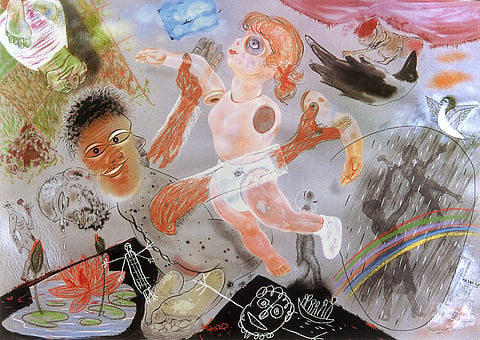City of virtue
"How much more?"
"Seven minutes"
"Go to Mumtaz," I told the young editor, "let's cut her short."
"But she is good. She works."
"Yes, but it is too long. Let's cut the beginning, we can't cut the end. She is crying towards the end."
"The Panchayat said I should marry him. Then even my mother, brother, father and sisters started to ask me to marry him – so what could I do? Nikaah was done. I thought it will become ok. But every time he came close to me I would start to scream. I told myself not to scream, but I screamed. I would scream! He would get angry and thrashed me every time. And then he started telling the villagers that I was mad, they had married him to a mad woman. He took me and my family to the Village Panchayat again. No one talked about the rape in the Panchayat this time. They kept saying 'I can't scream. I should not scream before my husband.' I should not have screamed."

